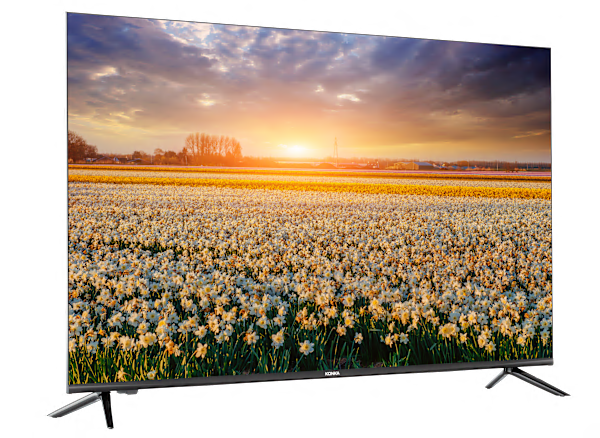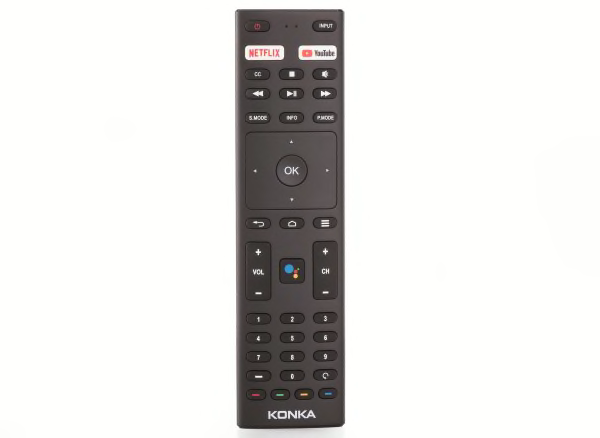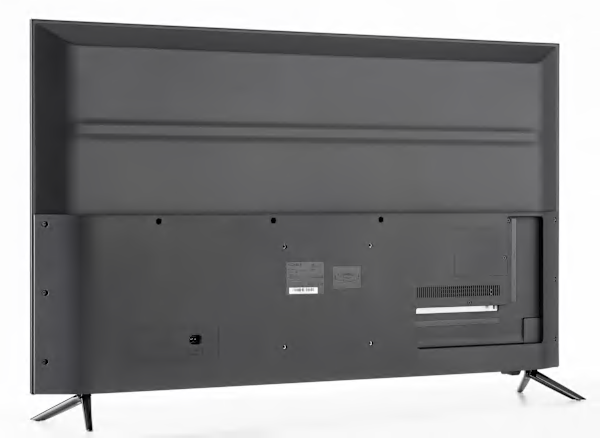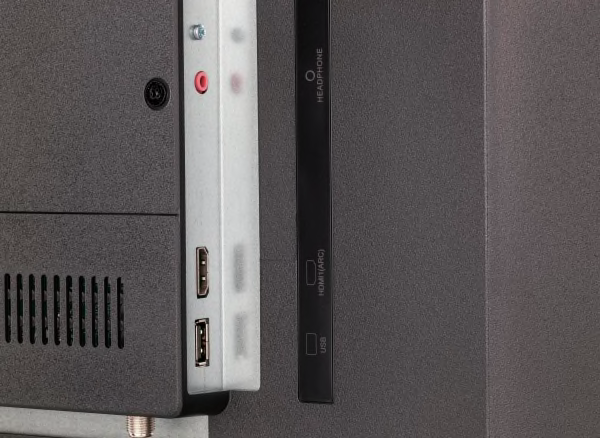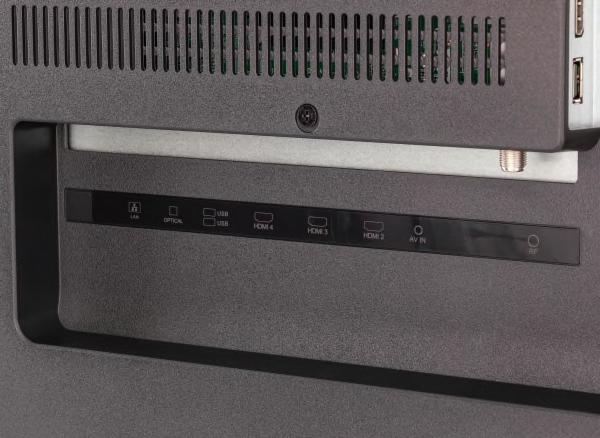HD PICTURE QUALITY. HD picture quality was Very Good, overall. Reproduction of fine HD image detail was Excellent. Color accuracy was Very Good, with flesh tones in particular, looking natural. Very Good contrast—the difference between the darkest blacks and brightest whites—gave images convincing depth and dimension. Black levels were OK and maintained some contrast in darker scenes, but they fell short of the better TVs. The quality appeared worse as we viewed from the sides—see our Viewing Angle results, below. Image brightness was Very Good (with the backlight control turned up), so the picture was well suited for a brighter room—a lower setting is recommended for a dimmer viewing environment. There was slight display non-uniformity in our test sample—it appeared as brighter cloudy areas which were most noticeable on very dark scenes (or in the black bars of a letterboxed movie)—the severity can vary from model to model. Its reproduction of smooth edges on image content for "up-converted" HD-to-UHD images was generally Excellent and free of "jaggies" (jagged edges); deinterlacing of 1080i video was Excellent; and film mode detection from 1080i content was Excellent.
4K UHD PICTURE QUALITY. Overall 4K UHD picture quality was Very Good, overall. In our UHD testing, we played native-4K movies and test videos (non HDR) thru the TV's HDMI input, and found their image detail was all there. For color, contrast and black level, the TV performed similarly to its HD picture quality.
HIGH DYNAMIC RANGE (HDR) PERFORMANCE. HDR performance was ineffective. As we began testing its HDR performance, we discovered that this TV doesn't have settings for optimizing specifically the HDR picture. We couldn't optimize the HDR image without adversely affecting our original (HD SDR) optimized settings, so we left the settings as is. In our tests, the display did not have the peak brightness capability necessary (by HDR standards) to reproduce the extended contrast on our HDR content. It could not reveal much contrast between the moderately bright and very bright highlights, while the brightness levels in the mid-to-lower tones, like those in an indoor scene, were somewhat limited.
VIEWING ANGLE. This Konka model has a narrow viewing angle overall, below-average performance among TVs. Only those seated directly in front of the screen will see the best picture quality. We examined the image quality at various viewing angles—its image quality notably decreased as we moved away from the center position. When we viewed the TV from the sides image quality degraded significantly. The picture showed a strong loss of color, so flesh tones looked very washed out. Black levels visibly brightened, and reduced the contrast especially on dark scenes. We viewed the image from above and below center screen, and noticed Good vertical viewing angle performance, with only slight changes in color, contrast, and black level.
MOTION BLUR. In our motion tests, this Konka TV had Good motion performance, with some blurring. It does not have a special feature to minimize motion blur.
SOUND QUALITY. We got sub-par sound quality, with below average performance. It could be acceptable for typical programming, but its shortcomings would be obvious with movie soundtracks and music. In our listening evaluations, we found the bass (low frequencies) to be lacking. Treble (high frequencies) lacked detail. The overall sound was closed in. This TV should be OK if the room isn't too noisy—we found the speakers could produce a Good volume level, and quality did degrade at high volume settings. Also, at higher volume, its dynamic-compression feature prevented gross distortion, but also strongly limited the clarity and naturalness of loud peaks. If sound quality matters to you, you might want to add a soundbar or other external speaker system.
EASE OF USE. Consider the TV's stand is 46 inches wide when choosing a table top to place it on. On first power up, an on-screen guide appeared—which you could choose to follow when setting up the TV. The remote controls the TV via an RF signal and doesn't need to be pointed at the TV. It has a full number keypad for entering channel numbers. It includes all the buttons we typically expect: power, channel up/down, volume control, mute, source input, menu, and exit. The remote has a microphone for accessing a built-in voice assistant feature. It also has dedicated buttons for streaming Netflix and YouTube.
INTERNET FEATURES. This TV provides internet functionality via its "Android TV" portal, with access to a library of applications from the Google Play Store. Movie streaming services that can be downloaded to this TV, or are built-in, include Netflix, YouTube, Amazon Prime Video, Hulu, Disney and HBO Max. More so, Netflix, YouTube, Amazon Prime Video and Disney can be streamed in 4K UHD. Includes built-in Google Assistant, a virtual assistant, which allows you to use natural speech to ask questions, launch applications, and search programming by talking to the remote.
CONNECTIONS. This model has four HDMI inputs (one supports ARC, audio return channel). It also has three USB ports, an optical digital audio out, a headphone out, an Ethernet port, WiFi wireless networking; Casting, which allows you to send streaming content from your mobile device to the TV via your home network; Screen mirroring, where the image on your smartphone or other compatible device can also appear on the TV. Analog video, one composite with stereo audio, is made via a special breakout cable adapter (included) that attaches to the TV as a single plug.
WHAT'S INCLUDED. You get with this TV: a quick start guide, a remote control with batteries, breakout cable adapters (one composite with stereo audio), and a detachable power cord. No printed manual is included.
ABOUT UHD TESTING: Ultra-high definition "UHD" can refer to both the TV and program content. While the UHD industry standard includes 4K and 8K, most UHD TVs and UHD content at this time are 4K. A 4K UHD image is presented as 3840 x 2160 pixels—four times the pixel-count of HD. We test UHD TV picture quality using 4K UHD movies, videos, photos, and test patterns to confirm these displays deliver performance to this format's full potential. We examine the TV's ability to reproduce 4K UHD image detail, as well as high dynamic range (HDR)—for TVs that support this capability. Image quality is tested using a UHD movie player connected to the TV's HDMI input, and from files stored on USB flash drive. We also check how well the TV can upscale HD movies to the display's higher UHD resolution while keeping artifacts such as "jaggies" along the edges of image content to a minimum. The best UHD TVs, and HDTVs, present high fidelity images that reveal the full quality of the best source content without degradation.

















